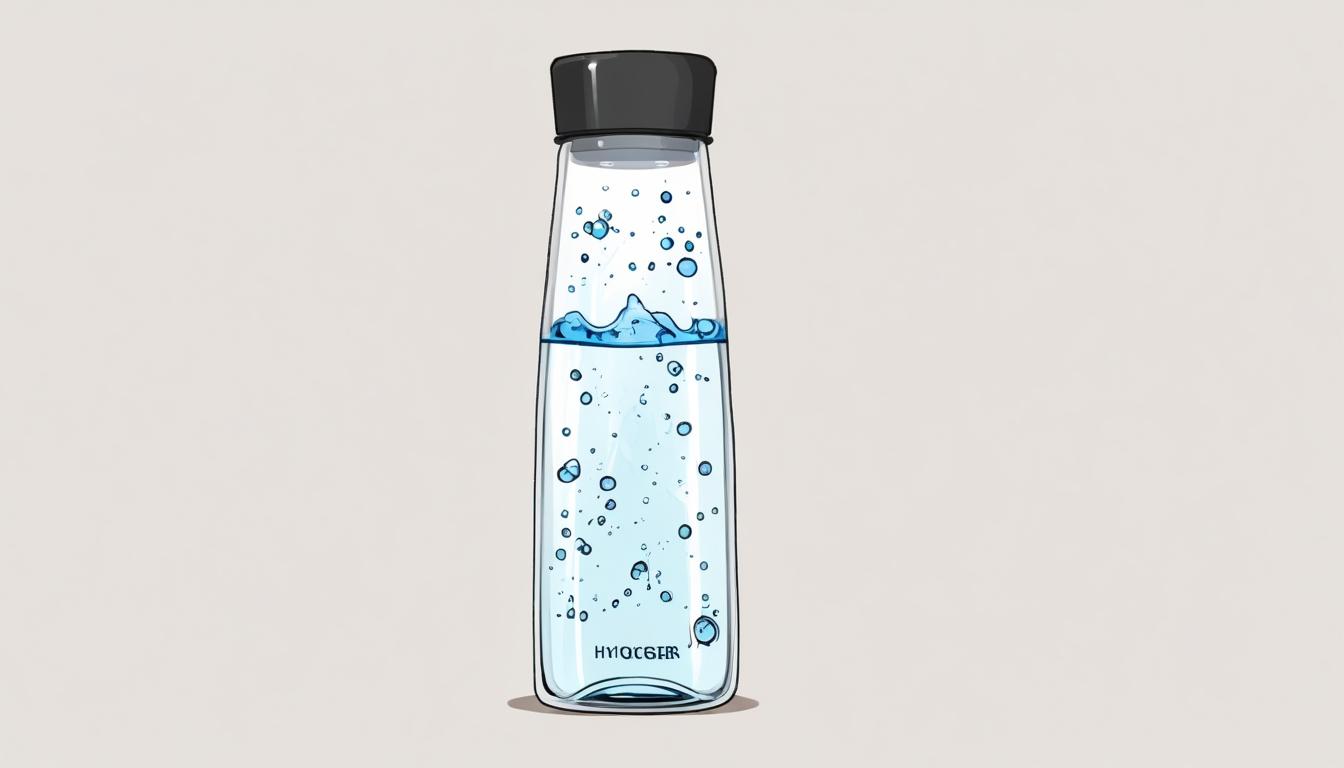Water, the most essential resource of life, often falls to the wayside in our daily routines. Despite its critical role in maintaining cellular, tissue, and organ function, many in the UK consume less than the recommended daily amount of water—approximately two litres. This chronic level of dehydration can negatively impact physiological processes ranging from digestion to waste management, joint lubrication, and even weight maintenance. In a world where access to safe drinking water is largely available, one might think that simply drinking from the tap could suffice. However, wellness trends continue to revolutionise how we approach hydration.
Recently, hydrogen water bottles have surged in popularity, capturing the attention of health enthusiasts and sceptics alike. Priced from £25 to a staggering £300, these bottles infuse regular water with hydrogen molecules, promoting a slew of purported health benefits. Advocates suggest that drinking hydrogen-rich water could aid in managing blood sugar levels, alleviating inflammation, and even enhancing athletic performance due to its antioxidant properties. Yet, the sceptics raise eyebrows at the idea that introducing gas into water could yield lasting benefits.
The divide between proponents and critics is starkly illustrated on social media platforms like TikTok, where users passionately endorse their transformative experiences with hydrogen water—often accompanied by promotional codes—while others deride the trend as nothing more than an expensive gimmick. The claims made by enthusiasts are often backed by figures like Gary Brecka, a biologist and biohacker who has taken to various media to tout hydrogen water's superior benefits. “Science shows it’s the best water you can put in your body,” he states. However, as many question the need for such a "hack" of a resource that already serves numerous health purposes, one must consider the underlying science.
Notably, a systematic review and meta-analysis published recently revealed that hydrogen-rich water (HRW) consumption is linked to significantly lower levels of total cholesterol and triglycerides, indicating potential health improvements in lipid profiles. Another study conducted in 2020 showed that HRW could reduce blood glucose and cholesterol levels, alongside inflammation markers, hinting at its applicability for those with metabolic syndrome. These findings are promising but remain preliminary, underscoring the necessity for more comprehensive, long-term studies to validate such health claims.
Julia Etman, a nutritionist at Healf, elaborates on the emerging evidence regarding the antioxidative benefits of hydrogenised water. While she acknowledges that optimism is warranted, she advises caution, pointing out that the body’s system for countering oxidative stress is remarkably efficient on its own. As she puts it, "While some early studies suggest potential benefits for inflammation, metabolism, athletic recovery, and even mood, the science is still developing."
Moreover, in a 2010 pilot study, those consuming hydrogen-rich water showed marked increases in antioxidant enzyme activity, suggesting significant antioxidant benefits. Similarly, research from 2021 highlighted improvements in physical performance among trained athletes, further feeding the discussion surrounding HRW's potential for enhancing health.
In the broader context of molecular hydrogen therapy, investigations are exploring various methods of hydrogen administration, from infusion into water to inhalation techniques. Initial findings depict a landscape rich with possibilities but highlighted with the caveat of needing rigorous clinical trials. As a Financial Times report in 2024 noted, while anecdotal evidence and small-scale studies indicate promising health effects, the lack of large-scale empirical research leaves many questions unanswered about hydrogen's mechanisms in the human body.
For those intrigued by the notion of hydrogen water but wary of their wallets, it may be worth waiting for more conclusive evidence before making a significant investment. After all, as scientific inquiry continues, we may soon discover whether this trendy hydration method is a genuine leap in our health journey or merely another fleeting wellness fad.
Reference Map
- Paragraphs 1-2
- Paragraphs 3-4
- Paragraph 5
- Paragraph 6
- Paragraph 7
- Paragraphs 8-9
- Paragraph 10
Source: Noah Wire Services
